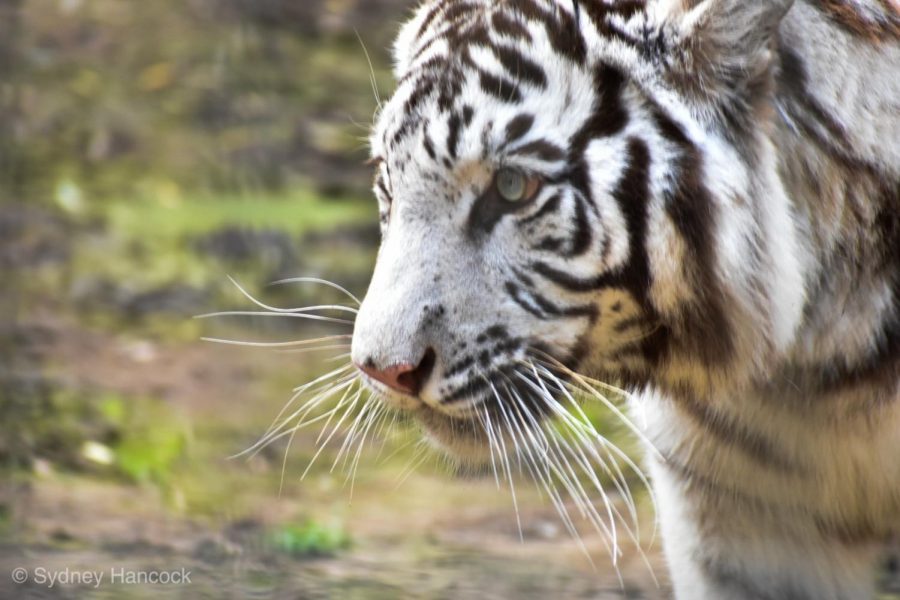Chinese Wild Animal Trade and the Spread of Novel Coronavirus
A DANGEROUS TRADE: The sale of wild animals in China poses risks not only to the animals hunted, but also individuals who handle wild animal products. Zoonotic diseases such as the coronavirus can be spread through the sale of wild animal products when not properly regulated.
March 2, 2020
The global spread of Novel Coronavirus (nCoV) has once again shed the spotlight on China’s failure to manage public health and safety. According to CNN, the virus has infected nearly 80,000 people in China and nearly 10,000 in 58 other countries. This includes the United States, where 91 cases have been confirmed- including two deaths in Washington. China has closed off access between large cities and many major airlines have suspended flights to China as late as March. Sophomore Nancy Xiao said, “I know in China, because I have cousins, all the roads are cut off to any other cities. [There’s] no school, and they’re going to have online classes.” Makeshift quarantine camps have been set up for the infected, and public transit has been shut down for high-risk areas such as the initial source of the virus, Wuhan. For the past four weeks, much of China has been effectively on lockdown.
In 2003, SARS (Severe Acute Respiratory Syndrome), another respiratory illness caused by a coronavirus, killed hundreds of people in China, causing a similar worldwide concern. Both SARS and nCoV are zoonotic diseases, meaning they can be spread from animals to people. Consequently, both illnesses have now been traced to meat markets or “wet” markets in China, where wild animals and wild animal meats, also known as bushmeat, are sold. China has long been a significant consumer of exotic animal products, due to a mix of poor regulation and cultural beliefs. Traditional Chinese medicine often calls for exotic animal products ranging from bear bile to tiger bones to rhino horns, and this demand leads to issues such as smuggling and exotic animal farms. The bushmeat trade thrives on lack of regulation at all levels. The native countries where the animals are hunted down–often African countries–as well as the countries where the commodities are imported and sold, such as China. This makes for a complex web of illegal activity that can be difficult to confront. Freshman Greer McGhee said, “I think the [Chinese] government should have stricter laws, because they can’t tell the African governments what to do.” Many Chinese have called for stricter regulation, as has the United States government, both for health and safety concerns as well as conservation reasons. However, the trade continues to flourish and put a variety of species at risk.
This poorly regulated trade results in Chinese wet markets becoming a hotbed for zoonotic diseases such as the Novel Coronavirus. China has since shut down the wet market in Wuhan, and placed a temporary ban on the raising, transporting, and selling of wild animals shortly after. However, many call for the ban to be permanent as fatalities rise to over 3,000 people. The consumption of bushmeat and exotic animal products is by no means the norm in many areas of China, and emphasis on traditional medicine varies wildly depending on the region. According to National Geographic, a 2014 study revealed that of those surveyed in the city of Guangzhou, 83 percent of people had eaten wildlife in the previous year. In comparison, 14 percent of participants in Shanghai had eaten wildlife, and only 5 percent in Beijing. Even so, traditional medicine has been encouraged in the recent past by President Xi Jinping as an important part of Chinese culture that should be held at equal importance to Western medicine.
Junior Ava Daley recognized the importance of traditional medicine as a part of the culture, but felt that the line should be drawn “when it puts the species at risk and when they’re not being hunted in small numbers and controlled populations anymore.” Senior Colton Willbrandt acknowledged, “I think [the bushmeat trade] would be harder to crack down on it if it’s used in certain medicines… It would be a lot harder if it’s a part of the culture.” Many, including Daley, are not hopeful that change will be made anytime soon. She said, “Unfortunately, I think it’s just gonna go back to normal… because it’s so culturally ingrained and there hasn’t been anything done before this, and it’s been an ongoing problem. I don’t think the coronavirus is gonna hugely impact anything.” Chinese workers are now returning to work after two weeks of the country on lockdown.



